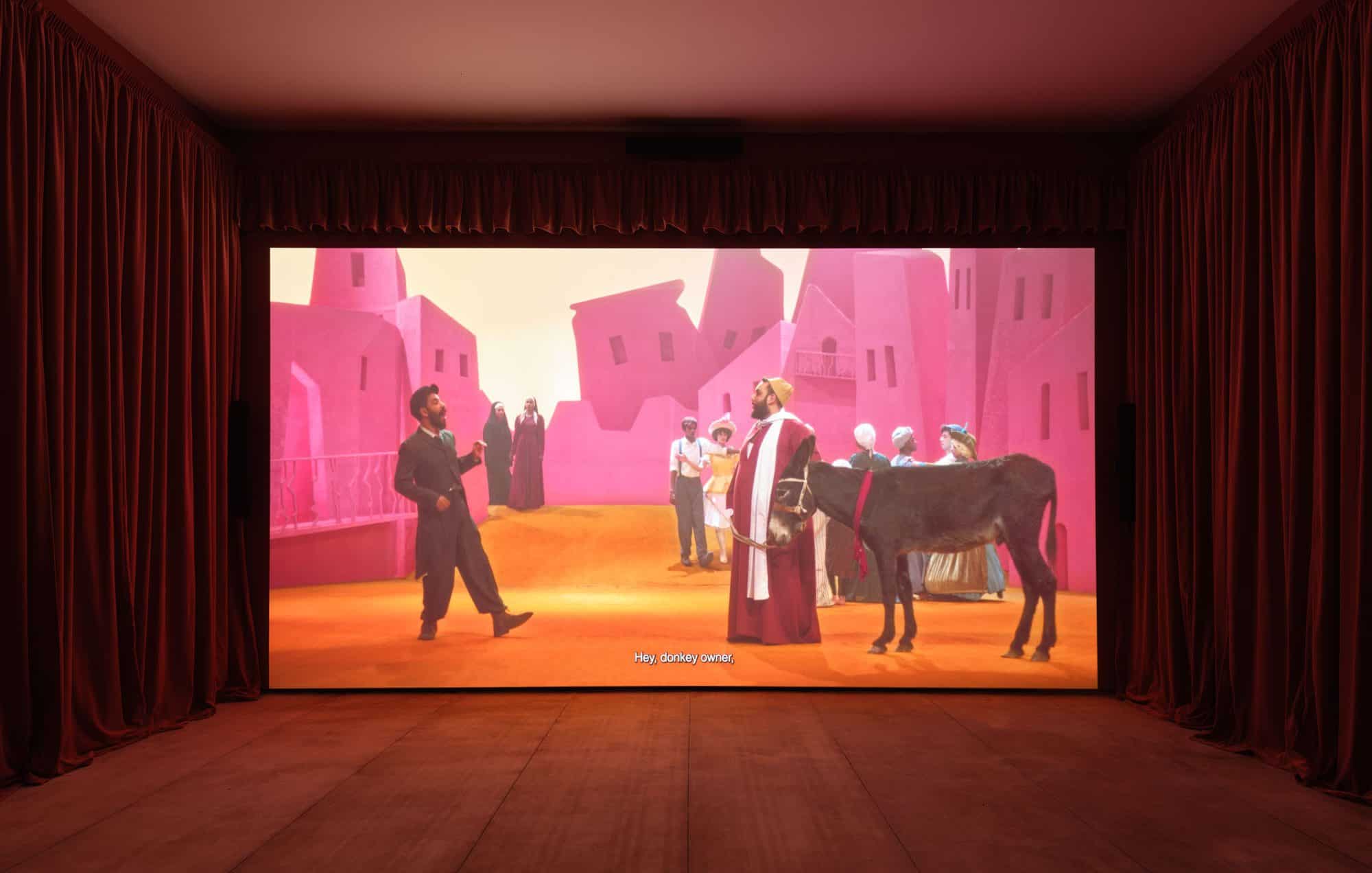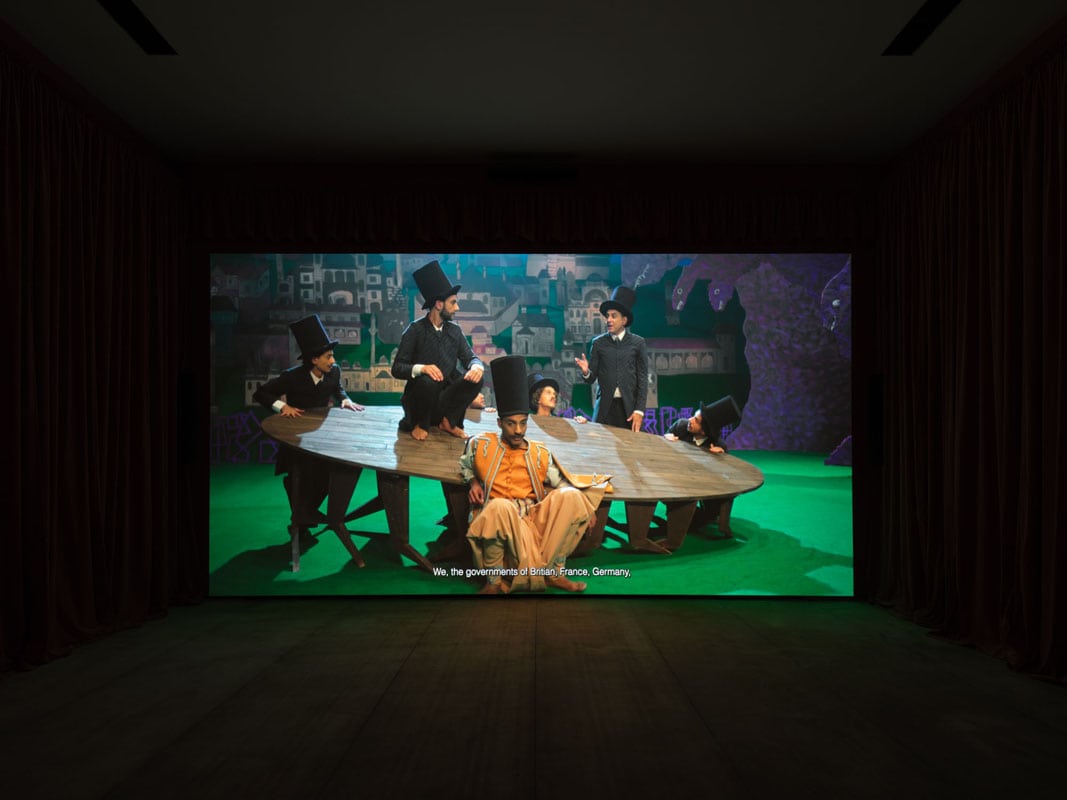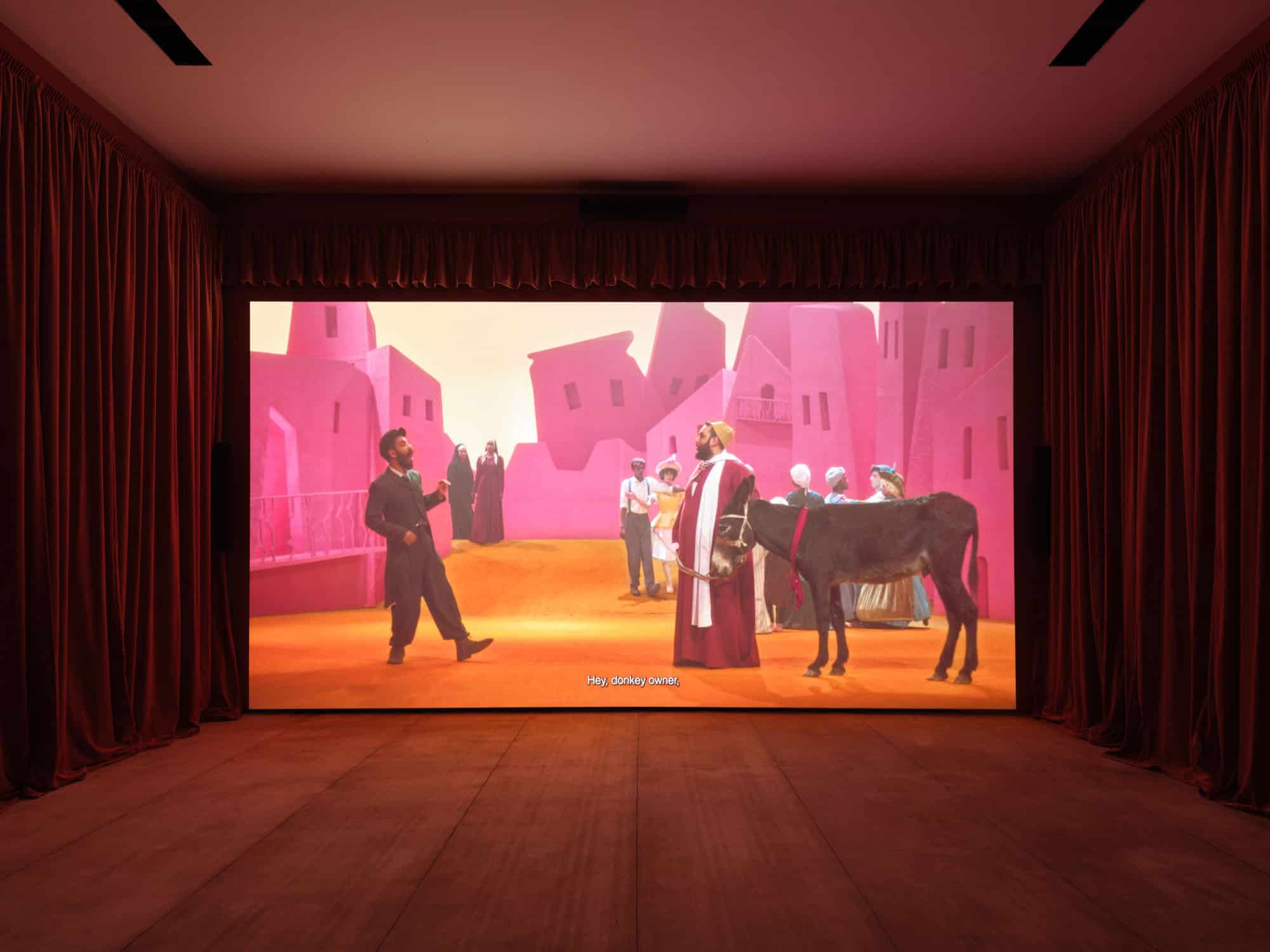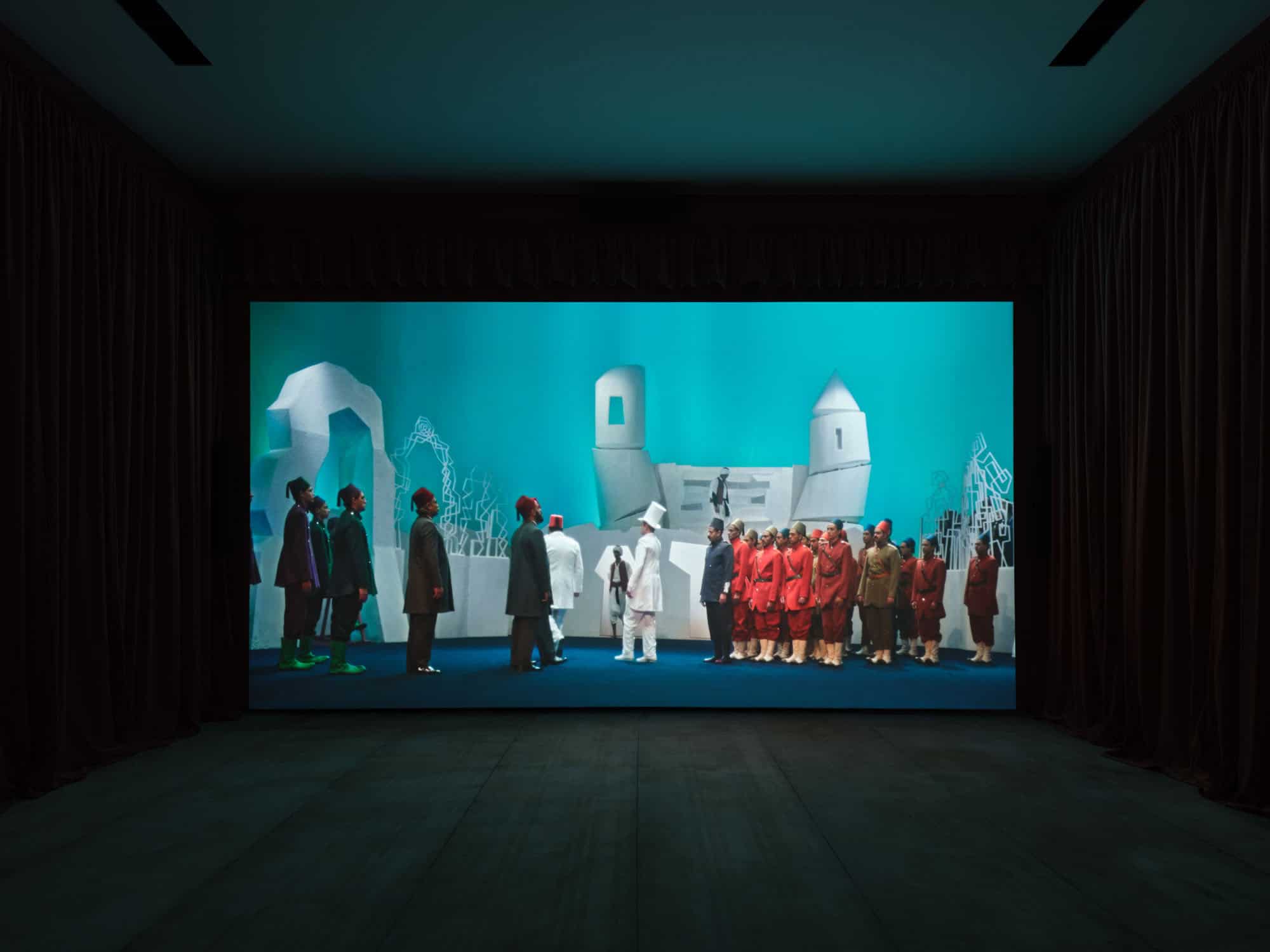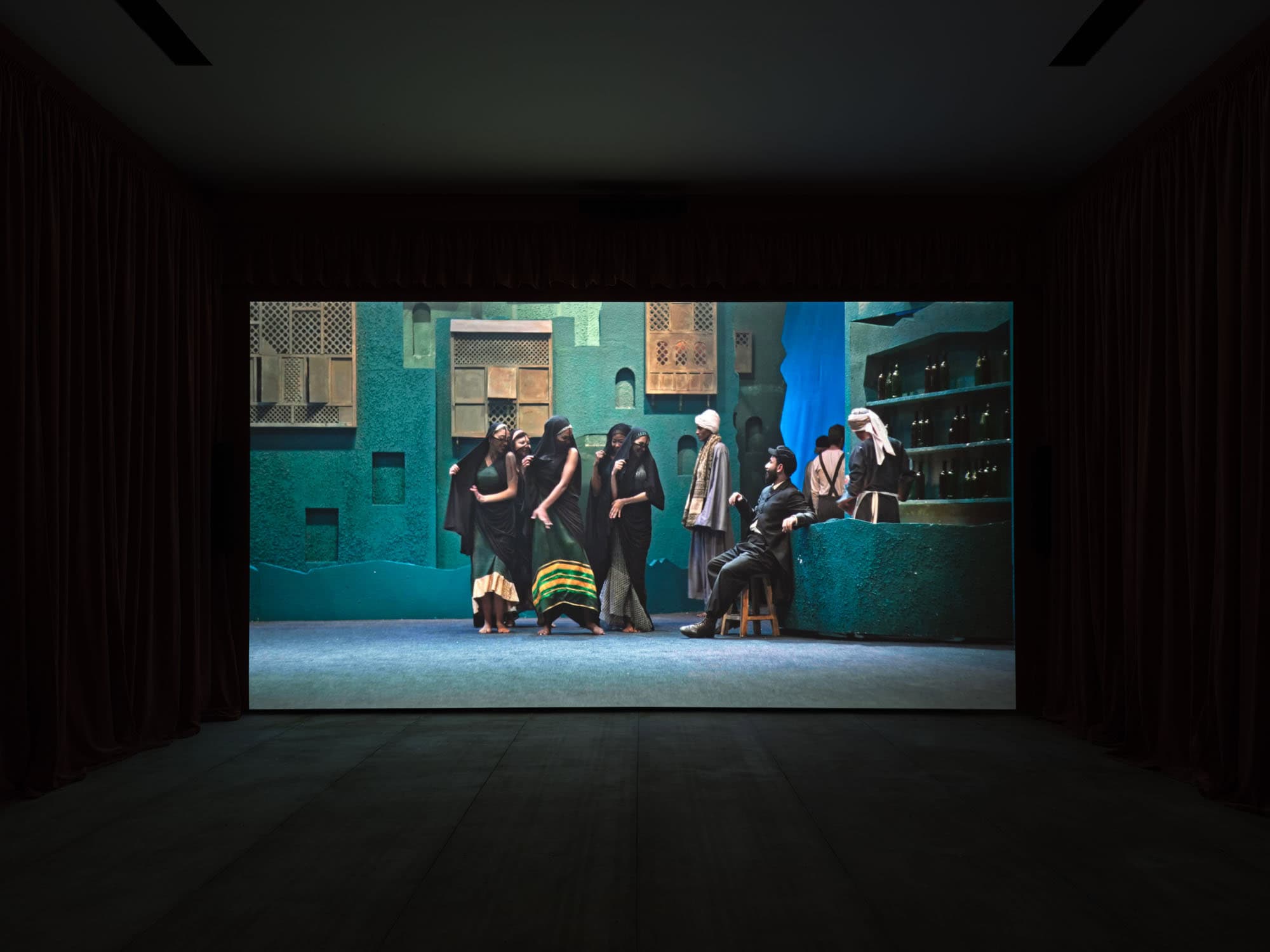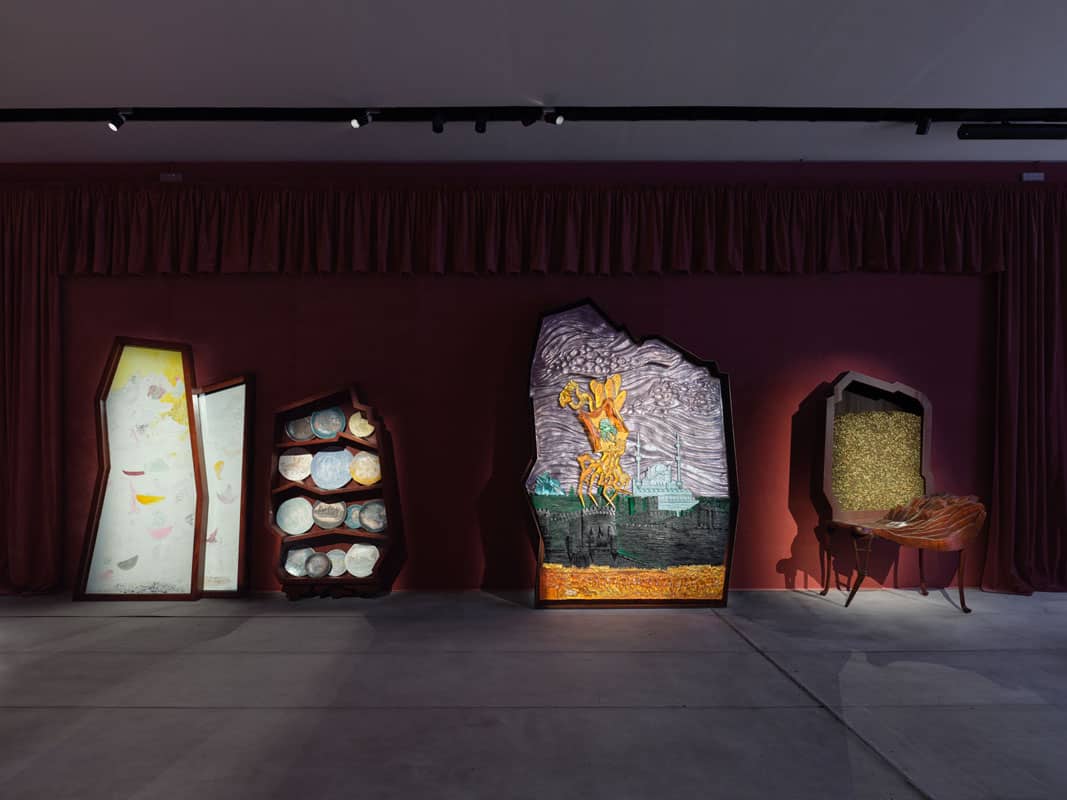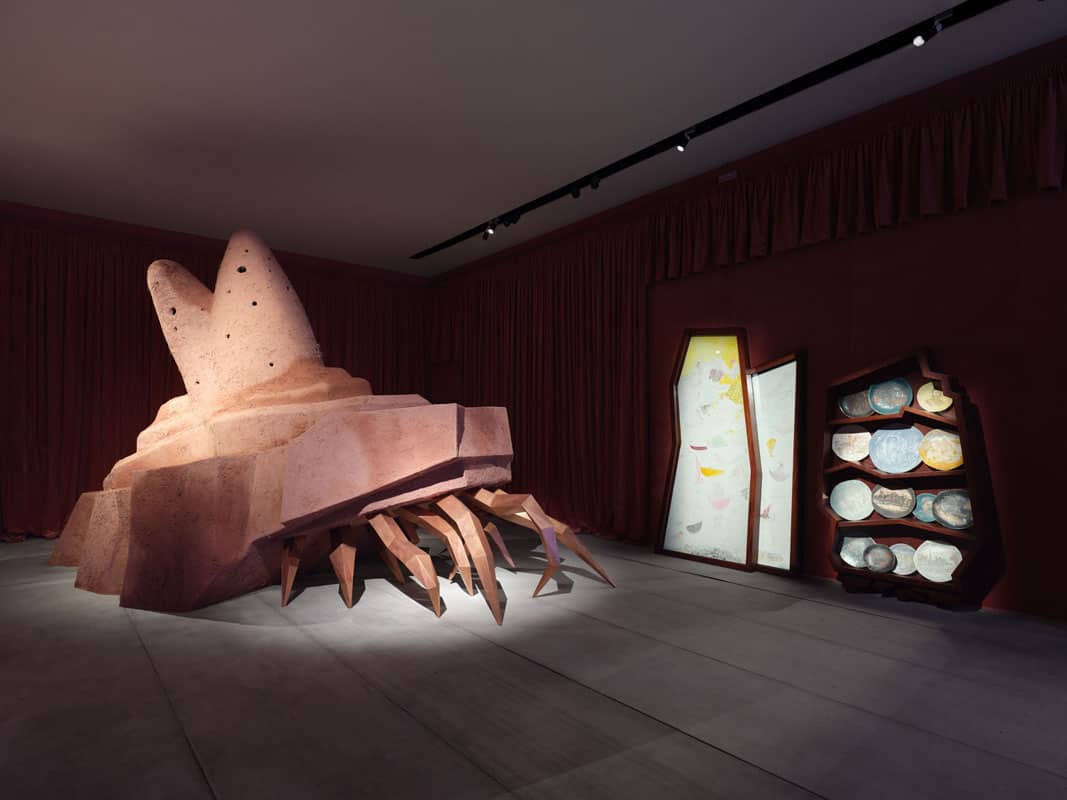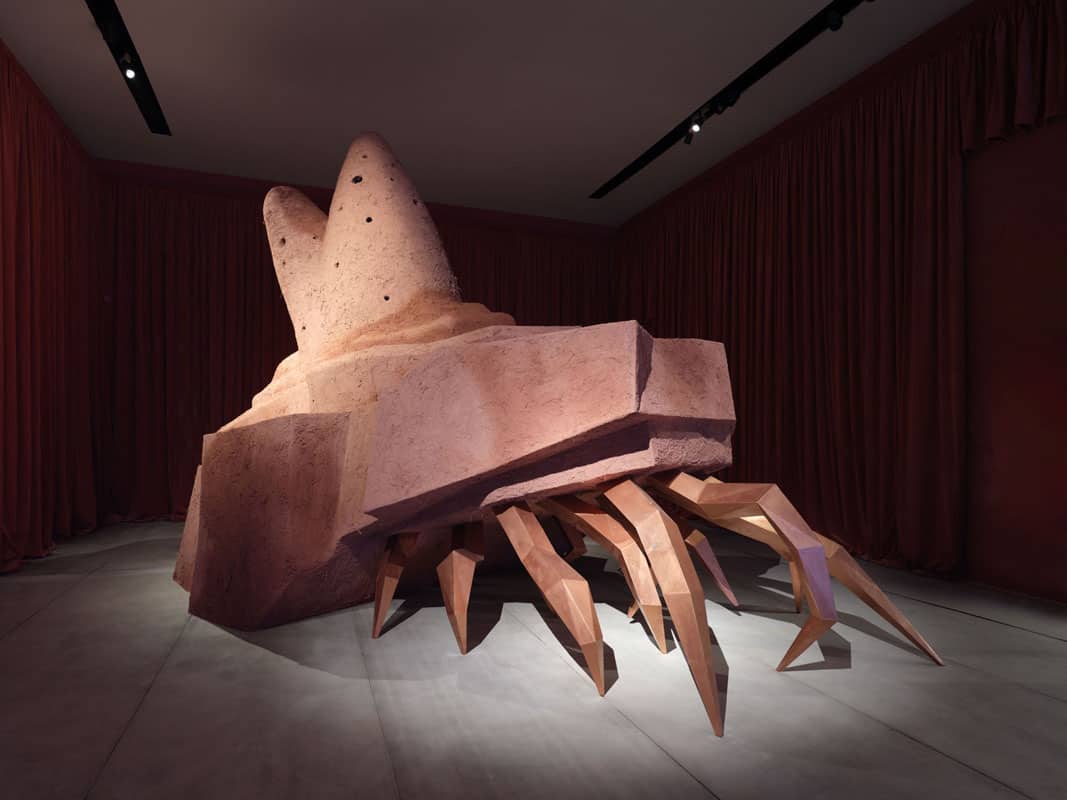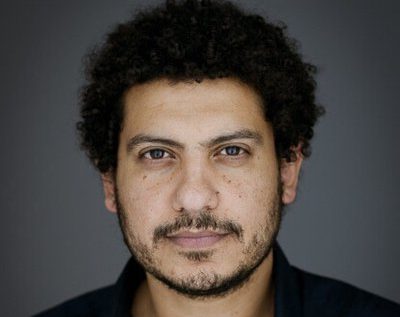For more than three decades, the Alexandrian-born artist Wael Shawky has blurred and redefined boundaries between film, performance, sculpture and installation through works that intervene in the gaps of the mostly widely held historical accounts of the culture and history of Arab world. His multilayered films and installations entail intricate hand-made sets and period costumes, as well as puppets, marionettes, and both trained and untrained actors, including children. Set alongside sculptures and drawings, his work immerses rigorously researched accounts of history into worlds of his own creation. This mix of truth and fiction posits his practice. He premises history to be a record of subjectively depicted sequences rather than indisputable facts. Through elaborate reconstructions of historic events, Shawky re-evaluates and raises questions about the ambiguities of chronicled documents of record, and the authority of written history.
Created for the Egyptian Pavilion on the occasion of the 60th edition of the International Art Exhibition of La Biennale di Venezia, Drama 1882 continues this practice of historical renditions. The eight-part, operatic film considers Egypt s nationalist Urabi revolution against imperial rule (1879-1882). Led by Colonel Ahmed Urabi, who climbed military ranks from peasant hood to eventually found the Egyptian Nationalist Party, Urabi campaigned to secure Egypt for the Egyptians. But what exactly happened in 1882 to implode his popular movement and precipitate the full-scale bombardment of Alexandria by British forces and his subsequent exile? Through a rigorous inquiry into the historical minutiae, Drama 1882 recasts the narrative lens on the summer of 1882, when a café-fight between an Egyptian donkey-keeper and a Maltese, erupted into riots that left 300 people dead and the city a site of devastation. Was the fight extemporaneous, or rather pre-meditated by the British to justify their subsequent attack? Filmed in a historic theatre in Alexandria, and staged to the backdrop of striking, painterly sets, Shawky precisely directs his cast to a mesmerizing musical that brings into dialogue both real and imagined histories. Written, scored, choreographed, and directed by Shawky, he methodically intervenes in the gaps of this chaotic and decisive moment in Egyptian history. By filling-in, inverting, or entirely challenging the record, Drama 1882 calls into question the very premise of the notion of truth with its particular, dominant narratives around sovereignty. It sets the Egyptian Pavilion as the center-stage for a timely and critical conversation around the necessity of revisionist histories and the futility of war.
